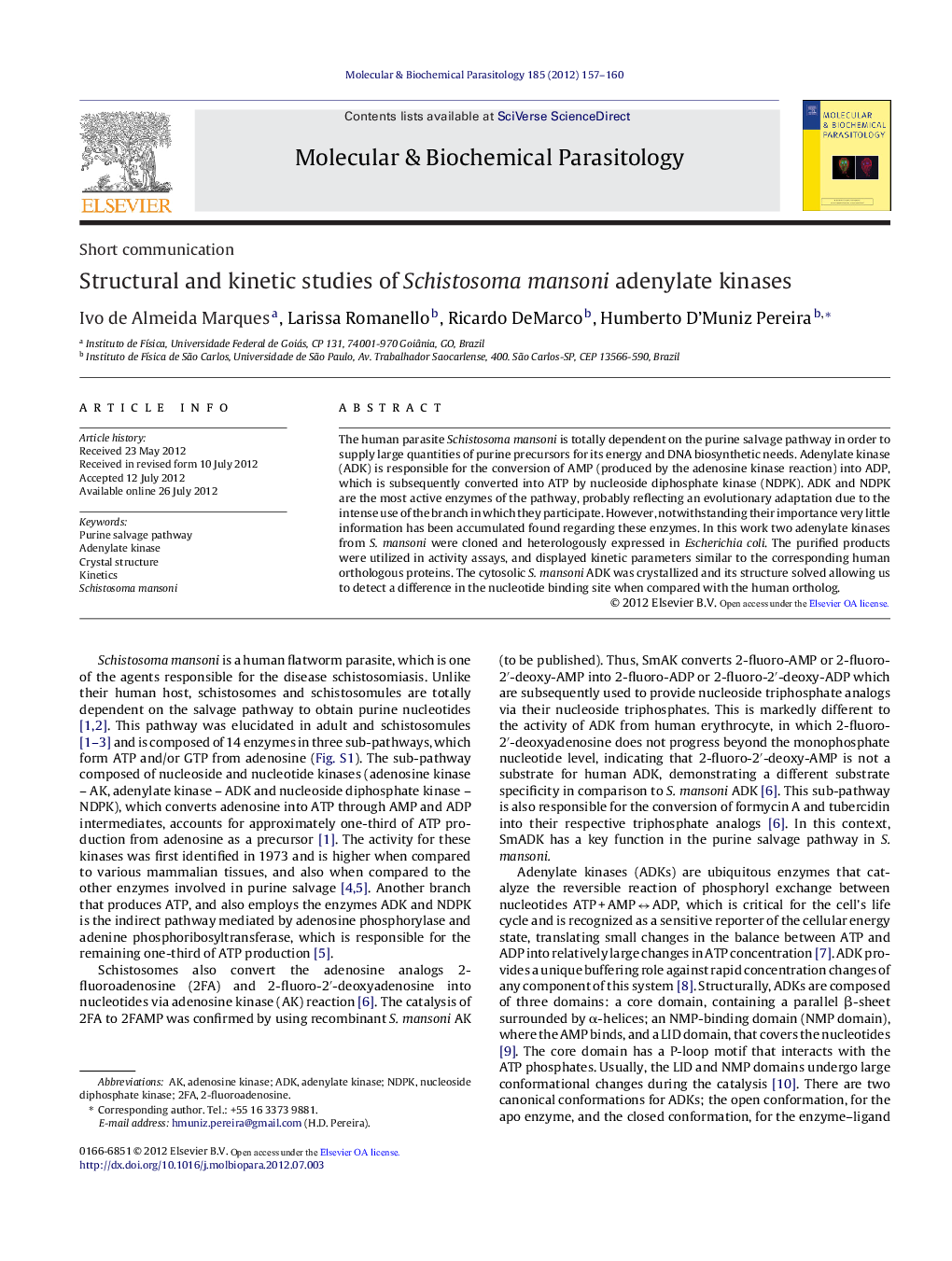| Article ID | Journal | Published Year | Pages | File Type |
|---|---|---|---|---|
| 5915618 | Molecular and Biochemical Parasitology | 2012 | 4 Pages |
The human parasite Schistosoma mansoni is totally dependent on the purine salvage pathway in order to supply large quantities of purine precursors for its energy and DNA biosynthetic needs. Adenylate kinase (ADK) is responsible for the conversion of AMP (produced by the adenosine kinase reaction) into ADP, which is subsequently converted into ATP by nucleoside diphosphate kinase (NDPK). ADK and NDPK are the most active enzymes of the pathway, probably reflecting an evolutionary adaptation due to the intense use of the branch in which they participate. However, notwithstanding their importance very little information has been accumulated found regarding these enzymes. In this work two adenylate kinases from S. mansoni were cloned and heterologously expressed in Escherichia coli. The purified products were utilized in activity assays, and displayed kinetic parameters similar to the corresponding human orthologous proteins. The cytosolic S. mansoni ADK was crystallized and its structure solved allowing us to detect a difference in the nucleotide binding site when compared with the human ortholog.
Graphical abstractRibbons model for Schistosoma mansoni cytosolic adenylate kinase structure.Download high-res image (125KB)Download full-size imageHighlights⺠Schistosoma mansoni depends exclusively on the purine salvage pathway for their purine supply. ⺠Two schistosoma adenylate kinases were cloned, expressed in E. coli, purified and biochemically characterized. ⺠The crystallographic structure of the adenylate kinase isoform1 was presented. ⺠The kinetic parameters were similar to human homologues.
